Gardening for Nature and Wildlife
The sight of sky and of things growing seem human needs, common to all.
Octavia Hill's statement was the inspiration behind our 2024 RHS Chelsea Show Garden. A founder of the National Trust, Octavia believed that everyone should have access to nature, especially in towns and cities, and worked hard to conserve green spaces.
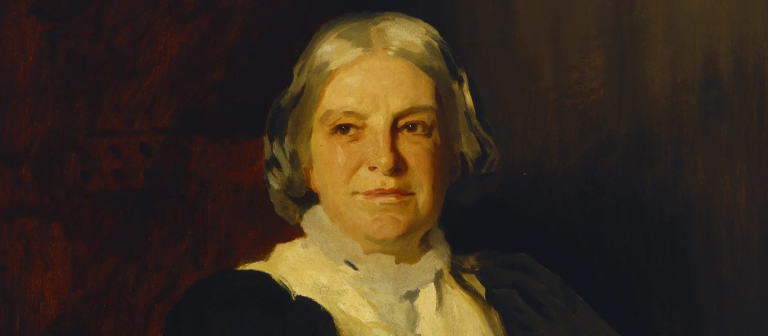
Gardens for all
Pioneering social reformer Octavia Hill, a founder of the National Trust, believed that ‘the healthy gift of air and the joy of plants and flowers’ were vital in everyone’s life. Blue Diamond, the National Trust and Ann-Marie Powell Gardens second this notion and believe in gardens for all – for people, nature and wildlife and that gardens have the power to transform lives.
The Octavia Hill Garden by Blue Diamond with the National Trust exhibited at RHS Chelsea this year, responds to these ideals. The UK is one of the most nature-depleted countries in the world and shockingly, one in three people in Britain still don't have access to nearby nature-rich spaces. If Octavia was alive today, she would be working to give urban communities access to nature because, as research shows, this is so important for physical and mental health.
The simple joy of being calm and quiet amongst the trees, observing nature around you can help both adults and children by improving their mental and physical health and wellbeing in a natural way. As Octavia believed, this should be a basic human right. A natural space that encourages wildlife to thrive is an invaluable asset to any community and even more so where people do not have access to a garden of their own.
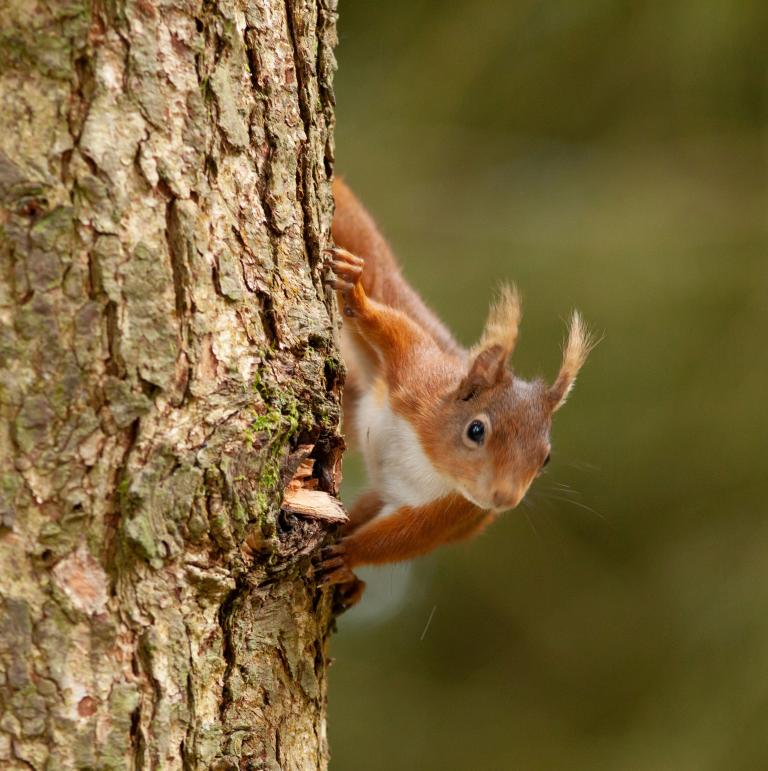
Wildlife
By taking measures to support wildlife in our ever-increasing, urban environment, feelings of accomplishment and achievement will inevitably follow, in turn boosting our wellbeing and sense of purpose. This is just one of the many reasons why gardening for nature and wildlife is such a positive and worthwhile thing to do.
The Octavia Hill Garden is an urban community wildlife garden, set on a brownfield site and shows how plants can thrive in places you may not expect. Our garden features some 3,600 native and non-native plants working together for biodiversity, chosen to provide food sources for a range of wildlife, including pollinators, all year round. This bold planting throughout the garden is set to appeal to wildlife and visitors alike.
For example, Celtis sinensis, a climate resilient tree very tolerant of air pollution, provides nectar for pollinators, butterflies and bees through its green flowers, while its orange autumn berries are a food source for birds and mammals. Clematis vitalba brings attractive creamy flowers to the garden, while also providing food and even nesting material for a range of pollinators and small mammals.
The decline in the UK’s animal and plant biodiversity is a growing concern and our garden showcases the importance of biodiversity by upholding the highest environmental standards. The use of rich planting, reclaimed materials, peat-free plants, environmentally sensitive hard landscaping, and resilient plant choices, demonstrates how great things can be accomplished whilst protecting nature.
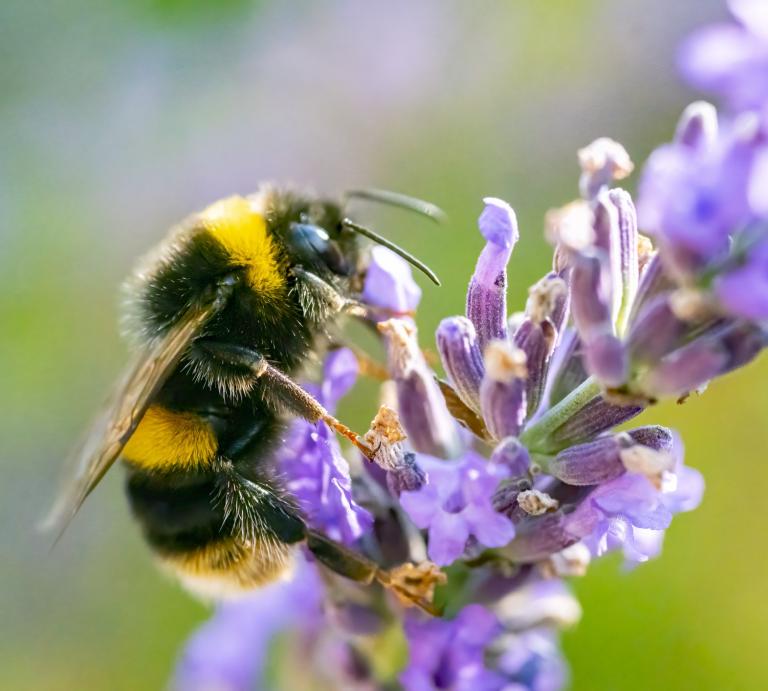
Bees
Bees play a critical role in our ecosystem; however, alarming reports of declining bee populations have raised concerns worldwide and some of the main factors contributing to the decline of bee populations in particular are:
- Pesticides: The excessive use of pesticides, particularly neonicotinoids, has been linked to bee population decline. These chemicals can impair bees' navigation, foraging abilities, and overall health.
- Habitat Loss: Destruction of natural habitats, including meadows and wildflower fields, has limited bees' access to food and nesting sites.
- Varroa Mites and Diseases: Parasitic varroa mites and certain diseases have devastated honeybee colonies, leading to significant losses.
- Climate Change: Shifting climate patterns affect the availability of flowering plants, disturbing the delicate synchronisation between plants and bees.
- Industrial Agriculture: Large-scale intensive farming offers limited forage diversity, which can negatively impact bees' nutrition and health.
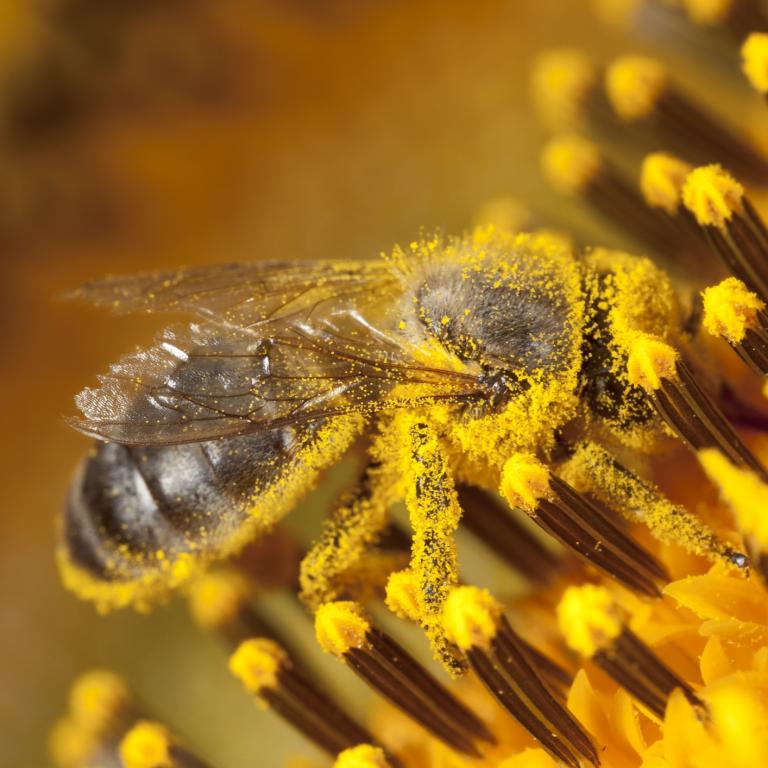
Pollination
Pollination is the transfer of pollen to a stigma, ovule, flower, or plant to allow fertilisation. Without pollination, plants simply could not grow and we would not eat.
What can we do?
There are many ways in which we can assist the survival of bees and other pollinating species and one of the best and easiest ways is to grow certain plants in our outside space. You can create bee-friendly garden by planting a diverse range of flowers that bloom throughout the growing season to provide a continuous food source.
You don’t need a garden either - a balcony, allotment or window box can work just as well and will still attract pollinators.
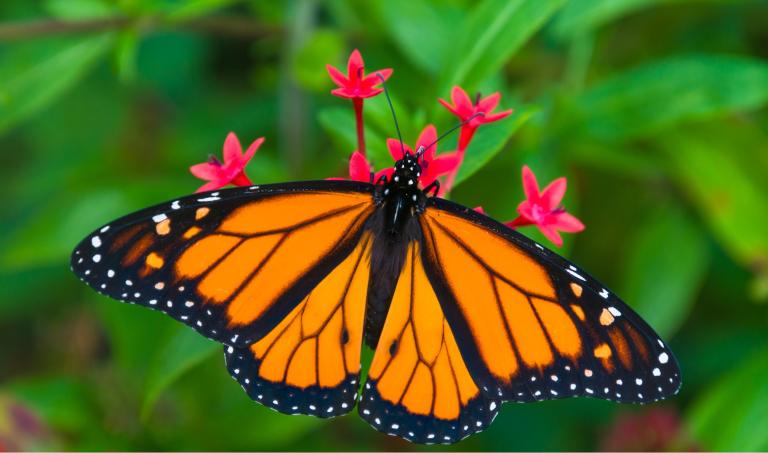
Suppporting wildlife in your garden
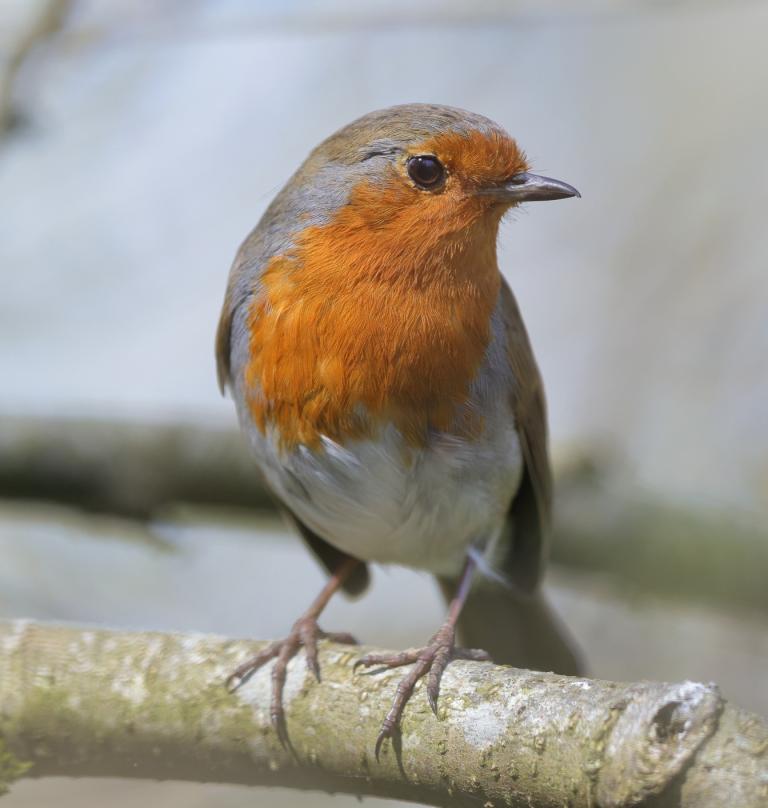
Wild Birds
If you attract insects to your garden, then birds will naturally follow as this is a main food source but it is still beneficial to provide extra feed for them.
Feeding wild birds in our gardens has become even more popular since Covid and studies have shown that this simple activity can reduce stress, anxiety and can increase our wellbeing. By keeping feeders and bird tables topped-up with seeds, peanuts, and other feed, this will provide essential nutritional value and will sustain birds especially through the colder months when there are fewer insect numbers.
Try to avoid using pesticides and chemicals when gardening as the harmful toxins finds their way into the food chain resulting in birds being poisoned and dying. Make the switch and opt for more natural and organic ways to garden.
Intensive farming, deforestation, modern building practices and over-tidy gardens have all made it more difficult for birds to find a place to nest in the UK. Therefore, introducing nesting boxes are a great way to help out and by hanging a range in your garden or outside space you will be providing another essential service.
Don’t expect an instant result though. Wild birds are cautious, timid creatures and it could take a while for them to feel confident to use your boxes. Be patient - you might not get a visitor, even after a year, as they will need to be certain that the area is safe and will need to check the site out time and time again before they commit.
Where you hang your nest box is essential for success. Most species of bird will require that the box is hung at least 4m from the ground and don’t forget to attach it securely. If you are lucky enough to have a resident, then simply leave them to it and watch from a safe distance.
Birds need to drink and bathe too and unless you have a pond in your garden with easy access in and out, then you will need to provide a source of water for them. A simple terracotta garden saucer is the most basic method as this will not blow over in the wind. If you’d like a more upgraded feature then a bird bath may suit you better.
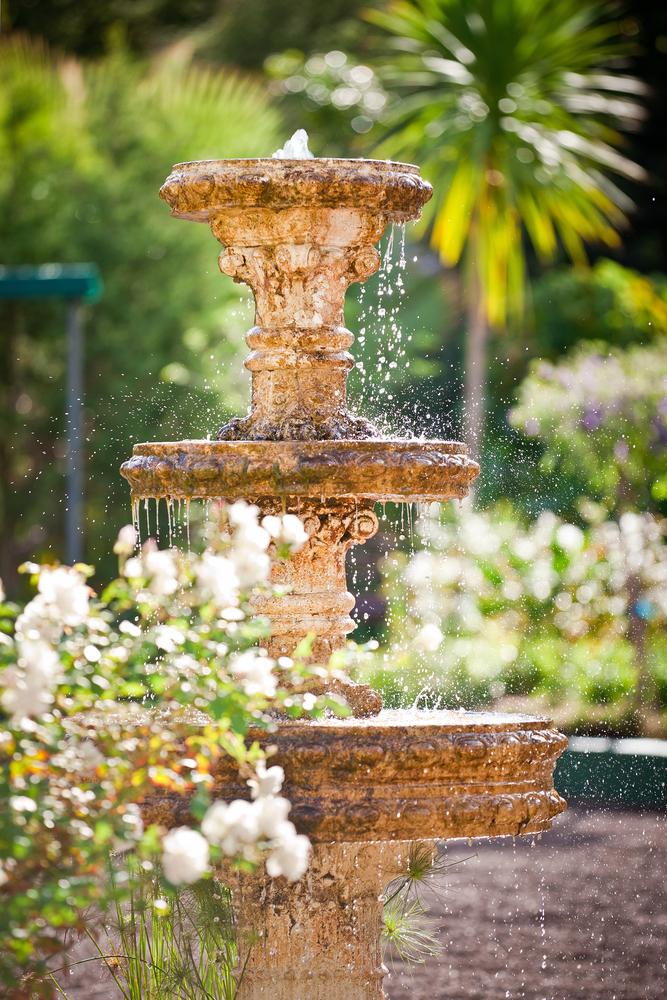
Water Features
The Octavia Hill Garden features a wildlife pond and walking stream - two key aspects that encourage intimate connections with plants and wildlife. The wildlife pond sits at one end of the garden, edged with aquatic plants to provide maximum habitat value. A pond dipping platform and walk-through stream, which helps to mask traffic noise, encourage curiosity, exploration and adventure.
Building a pond in your garden is a wonderful way to create a peaceful and relaxing environment, as well as attracting wildlife such as birds, frogs, toads, newts and insects which all have a vital role to play within an ecosystem. To encourage wildlife to visit your pond, it's important to provide a variety of habitats, such as rocks, logs, and plants and to create a shallow area where animals and birds can enter and exit the water safely.
You may also want to consider adding a fountain or aeration system to your pond. These can help to increase oxygen levels in the water and to create a more natural and hospitable environment for fish and other aquatic life.
The addition of a water feature to a garden not only benefits wildlife but can also support our wellbeing. Blue Mind Science is a science that proves the health benefits of being near water.
“This deep biological connection has been shown to trigger an immediate response in our brains when we're near water. In fact, the mere sight and sound of water can induce a flood of neurochemicals that promote wellness, increase blood flow to the brain and heart and induce relaxation’’ - marine biologist and author of the 2014 book Blue Mind, Wallace Nichols.
The sound of moving water has enormous calming effects on our minds and bodies and the benefits of being close to water can help our physical and mental health.
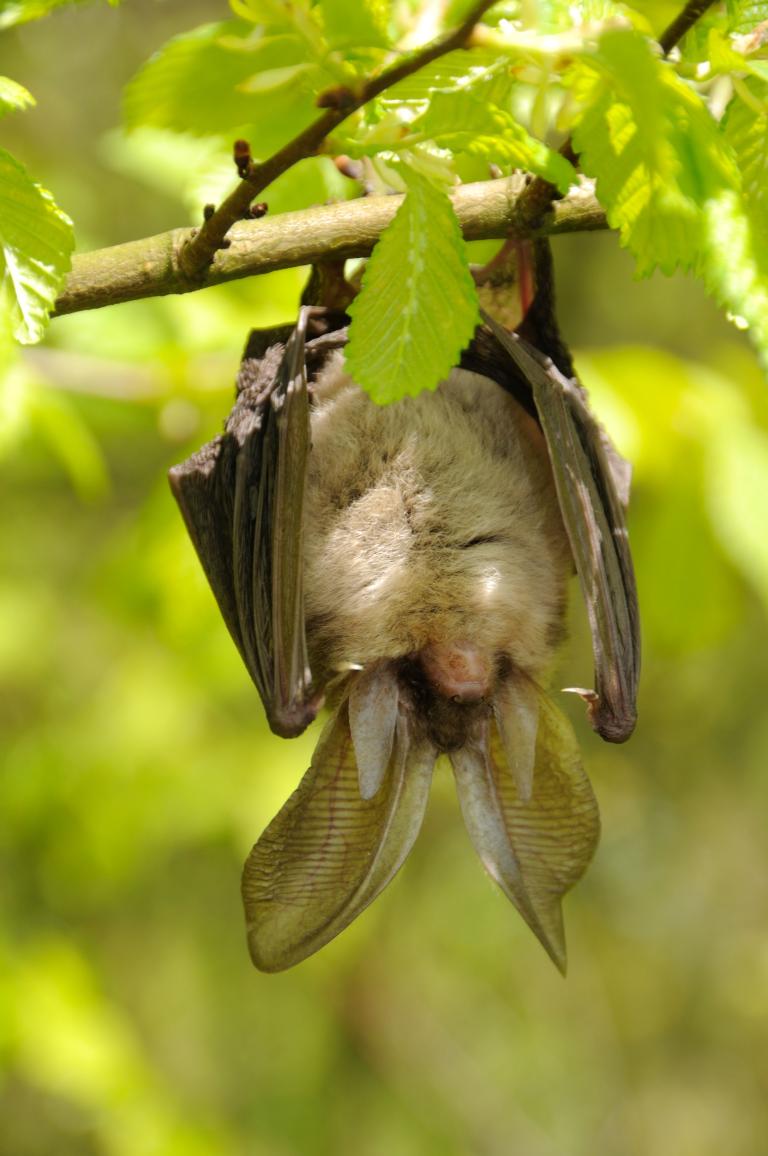
Hedgehogs and Bats
Hedgehogs are a gardener’s best friend as they eat the slugs and snails that eat their way through our plants and vegetable patches, but like bees, hedgehog numbers are also declining.
Many get killed on our busy roads due to habitat fragmentation as they cannot move freely from garden to garden due to the secure fences and walls that surround our properties. We can help though by simply creating a small opening somewhere in our garden perimeters to give them safe passage.
Habitat, nesting and foraging loss as well as hedgerow removal through urbanising development all takes it toll on the survival of these creatures. Similarly, the increased use of pesticides and garden chemicals also have catastrophic consequences as harmful toxins make their way into the food chain. This reinforces once again how vital green spaces are in our communities and to use natural gardening methods wherever possible.
Specifically blended hedgehog feed and shelter, placed in a quiet part of your garden will support hedgehogs. You can do this by either stacking logs and leaves in a wild section of your garden or opt to buy a ready-made hedgehog box. Either way, once established leave undisturbed.
Bats are nocturnal and eat the insects that come out at night. The best way to support their diet and increase their food source is to plant evening scented plants such as Jasmine or Honeysuckle as these will attract insects. Many night-time insects are attracted to light, making hunting easier. Using solar lighting will help to reduce your carbon footprint too.
Bats are protected species and it is illegal to remove them if you find them roosting anywhere on your property. By installing a bat box, you will be encouraging them to safely roost there away from your home.
